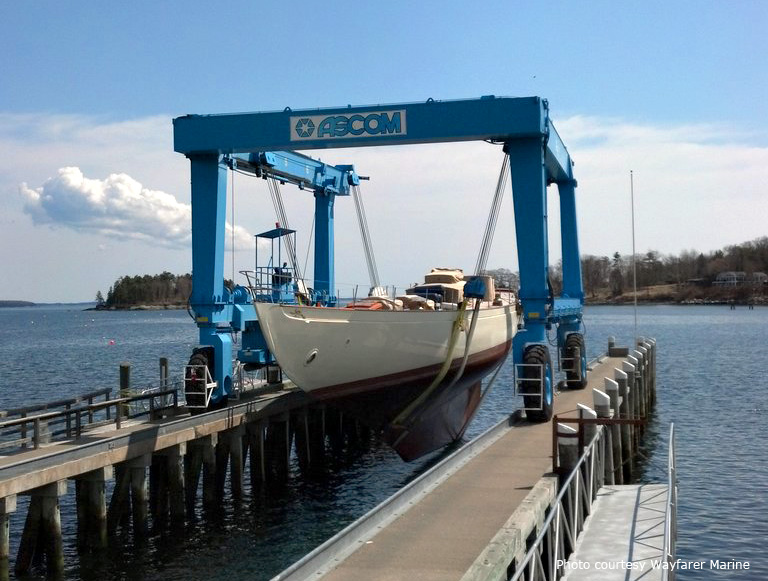By Jennifer Brett.
As the leaves start to fall in the northern climes, boaters are making their winter plans for their vessels. Whether you have a cruising sailboat, a trawler or a center console, here are five tips that you can do when winterizing your boat to lessen the impact on the environment.
Give your boat a non-toxic scrub
A good clean, inside and out, is one of the most important steps in preparing for a layup. Not only will you potentially reduce your workload in the spring by heading off issues such as mold and critters ahead of time—you’ll be able to get back on the water that much faster.
Scrub the decks and be sure that all scuppers are clear of any debris. When choosing boat cleaning products, pick something non-toxic that is safer for the marine environment. Cleaning products are necessary for dissolving and removing dirt, grime, allergens and germs. However, most cleaning products are not made to be directly released into our waterways. Ingredients in certain cleaners can damage fish tissues or persist in the environment and enter the food chain. Some products also contain phosphorous and nitrogen, which can put excess nutrients into the water causing algal blooms which can be harmful to coral reefs and coastal ecosystems.
After scrubbing, be sure to remove all food items, and clean out lockers and the fridge/freezer. Keep all locker doors open for air circulation and, if possible, remove bunk and settee cushions to store at home. Also make sure the bilge and shower sump are completely dry.
Perform engine maintenance
An end-of-season oil and filter change is an important step in the winterization process and will prolong the life of your engine.
Proper disposal of oil is key to preventing runoff from land. When handled properly, oil and oil filters can be recycled. Check with your marina to see if they offer collection of used oil for recycling, or use the search resources on Earth911.org to find your local recycling location.
Be sure to drain the water and run non-toxic (propylene glycol) antifreeze through the raw-water cooling system.
READ MORE at sailorsforthesea.org

